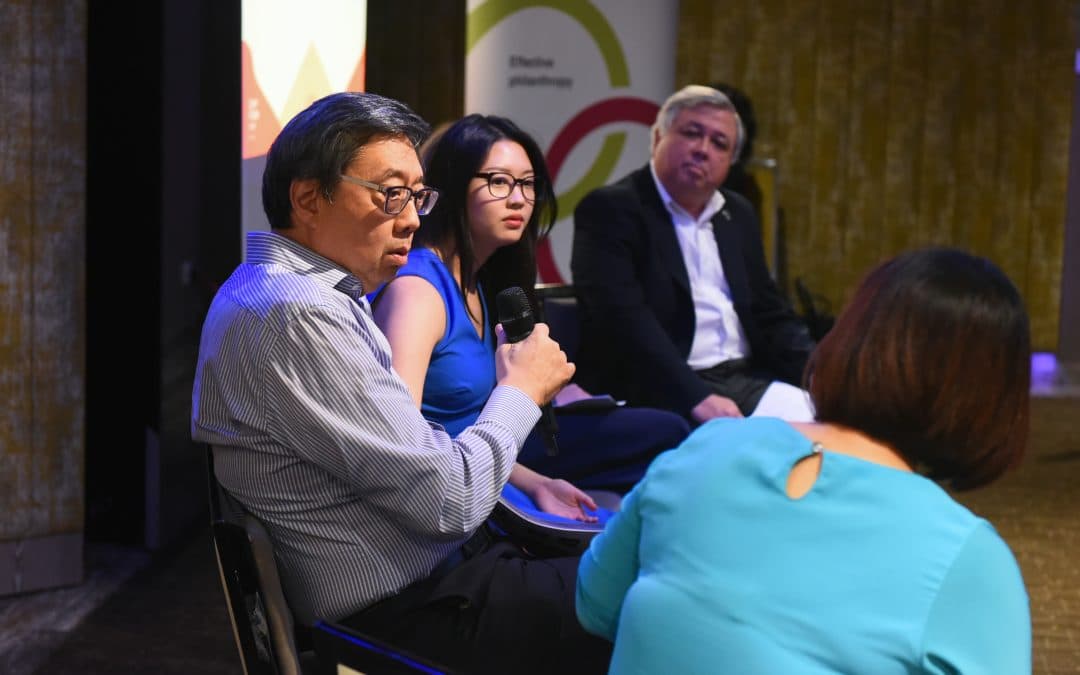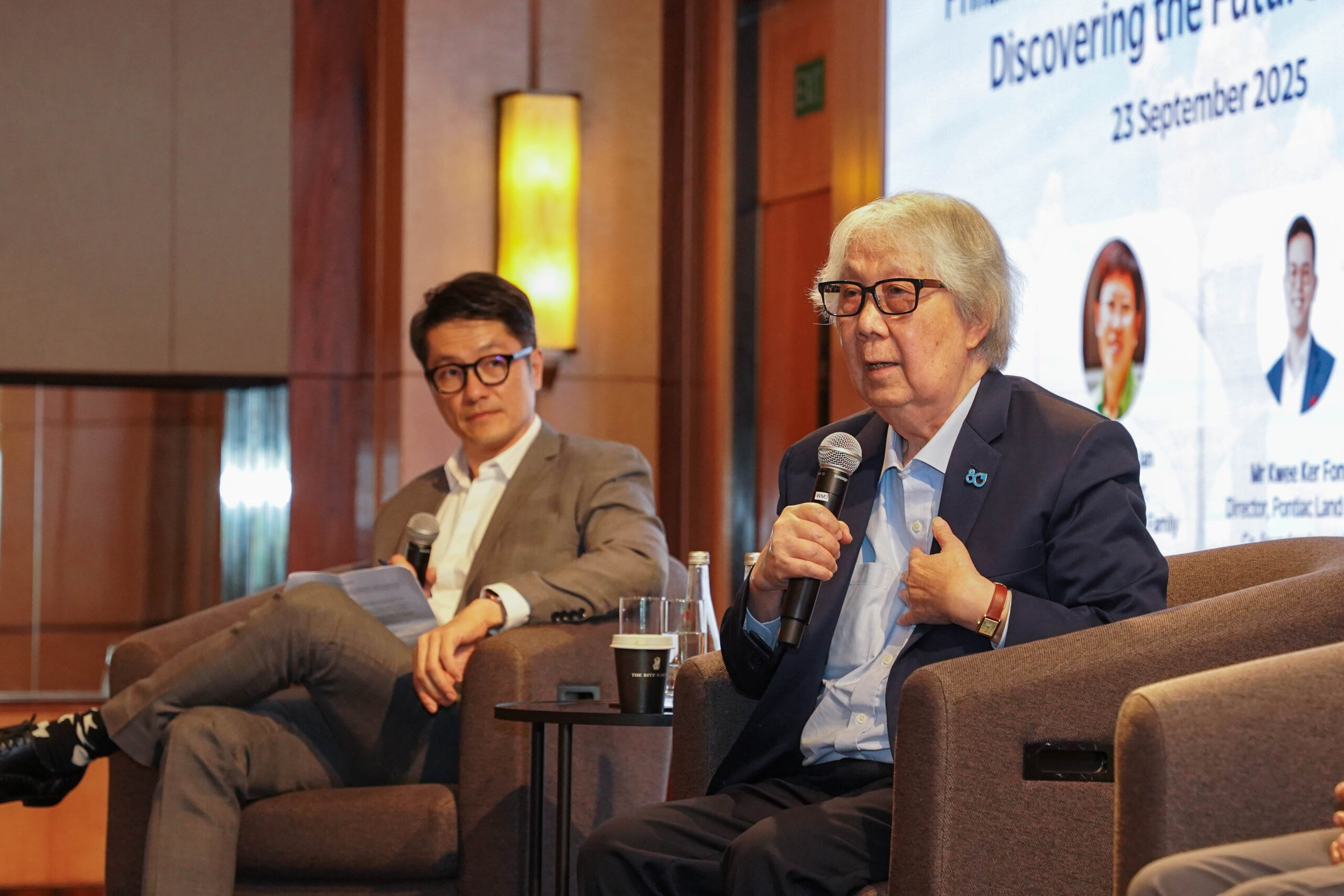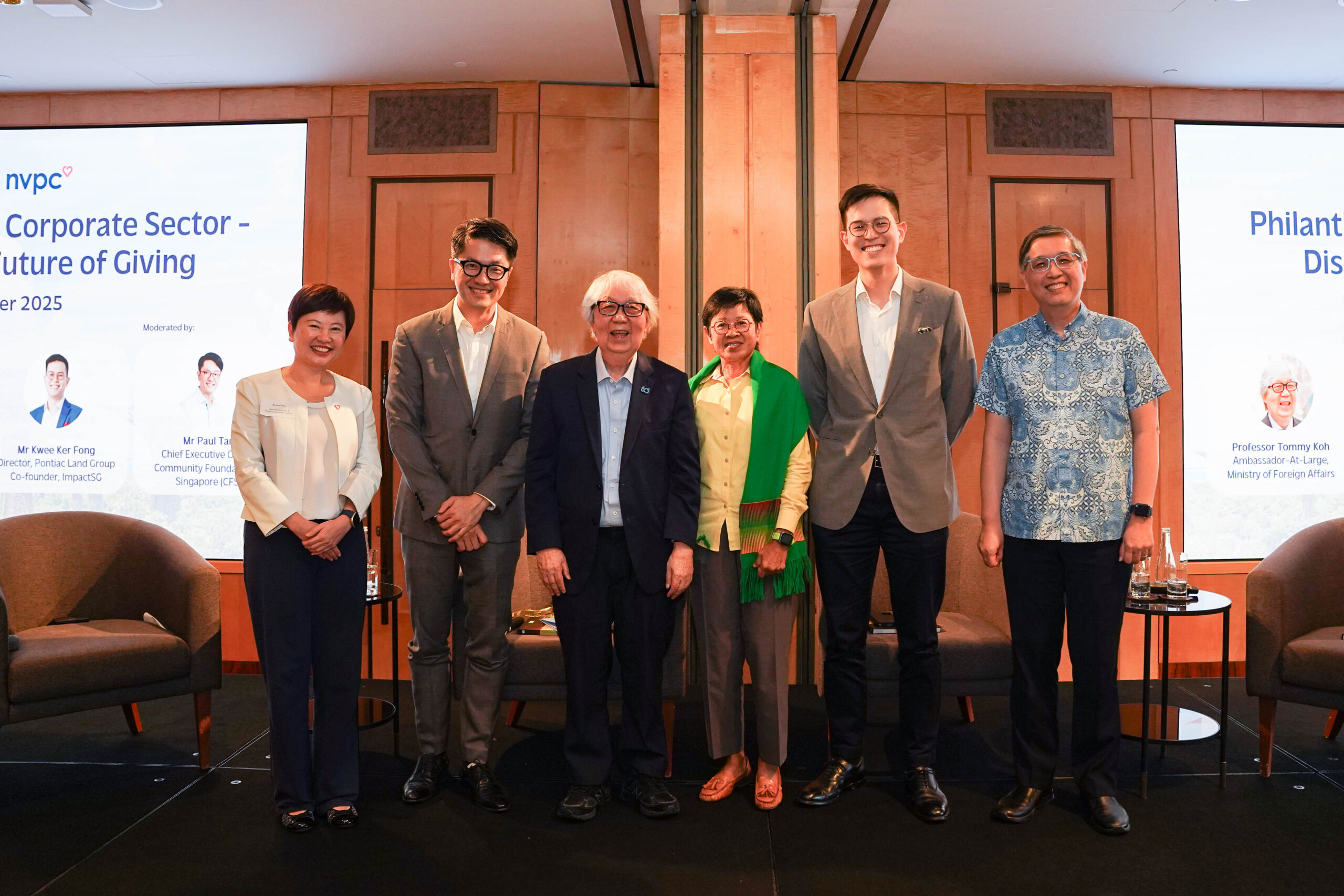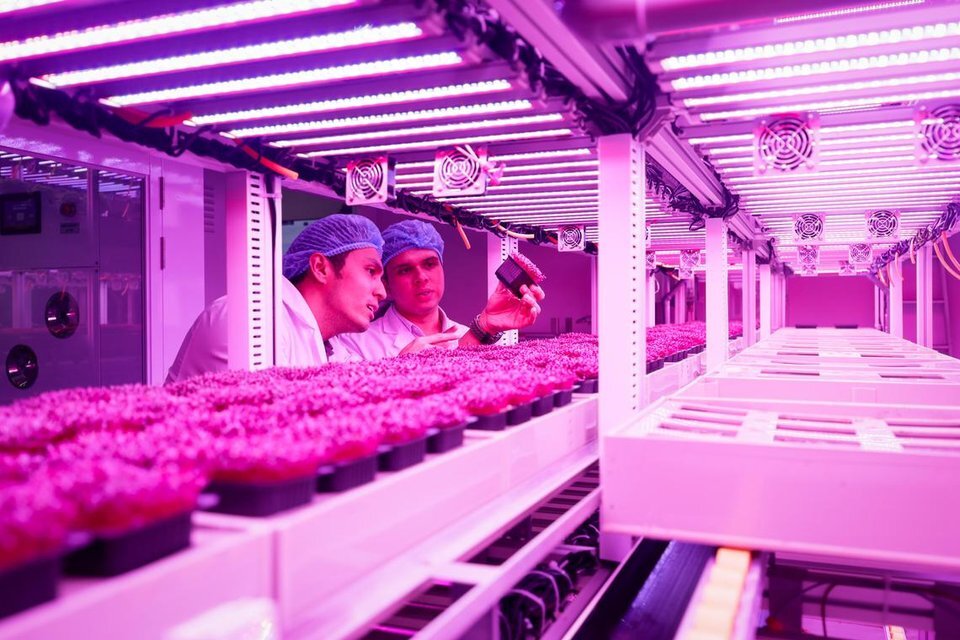Giving through the generations


Increasingly, individuals and family businesses are consciously looking at ways to create positive social impact through philanthropy – but in today’s world, what does creating a legacy mean from divergent perspectives, from individuals to families, from parent to child?
Last November, the CRIB x CFS Legacy and Impact cocktail event brought two prominent families, with extensive histories of giving, together with philanthropists and social capital investors to reflect upon these questions.
Moderated by Patsian Low, the panelists included Richard Eu, Chairman of Eu Yan Sang and his daughter Rebecca; and Keith Chua, Executive Chairman of ABR Holdings (and CFS board member), and his daughter Sharon.
To kick off the evening, Catherine Loh, CEO of the Community Foundation of Singapore (CFS), reflected upon the challenge facing families today. “When it comes to creating a family legacy, it’s about understanding how to bridge the different concerns and interests of each generation, and trying to align giving to key values,” she commented.
While members of the older generation might be more focused on passing on family values, Catherine observed, the younger generation is keen to explore new approaches to giving. “Many of our next generation donors have a strong social consciousness and feel they don’t need to wait until they’re richer, older and retired to start thinking about giving back,” she said.
Though her family has traditionally supported education and healthcare, Rebecca Eu struck a chord when she shared how she started social enterprise Love, Mei in a vastly different field, helping victims of human trafficking in the Phillipines. “I don’t think legacy is limited to your blood ties,” she proposed, “Instead, legacy moves on with the project you adopt and the people that you work with.”
Reflecting today’s shift towards strategic philanthropy, Sharon Chua shared how her professional experience with philanthropy advisory has empowered her to become a better steward of her family’s wealth. “I learnt how to evaluate impact, the sustainability of projects, and how to forage good partnerships, and that helps with my own family’s philanthropy. I’ve always believed philanthropy is something you need to be personally engaged and committed to,” she shared.
One audience member posed a question to both fathers on how they would manage their children’s future giving decisions to avoid conflict.
Richard espoused offering broad guidelines to one’s children and suggested “storytelling” as a way of passing on family values. “When your family is used to hearing stories, such as why your great grandfather did certain things, it becomes ingrained in your family’s DNA. The legacy you leave behind is not about having a building or place named after you, but the lives that you impact.”
Keith reflected on his role as a trustee for the giving of earlier generations, and proposed older family members play a key role in “setting mechanisms in place” for the next generation.
Keith said, “CFS provided us with an avenue to create a fund to leave something behind for the next generation and share it with our wider family. Under this structure, the funds will carry on for a certain period of time. Once you’ve set certain things in place, you can bring the next generation along for the ride, and trust them with the responsibility when it’s their turn.”
Increasingly, individuals and family businesses are consciously looking at ways to create positive social impact through philanthropy – but in today’s world, what does creating a legacy mean from divergent perspectives, from individuals to families, from parent to child?
Last November, the CRIB x CFS Legacy and Impact cocktail event brought two prominent families, with extensive histories of giving, together with philanthropists and social capital investors to reflect upon these questions.
Moderated by Patsian Low, the panelists included Richard Eu, Chairman of Eu Yan Sang and his daughter Rebecca; and Keith Chua, Executive Chairman of ABR Holdings (and CFS board member), and his daughter Sharon.
To kick off the evening, Catherine Loh, CEO of the Community Foundation of Singapore (CFS), reflected upon the challenge facing families today. “When it comes to creating a family legacy, it’s about understanding how to bridge the different concerns and interests of each generation, and trying to align giving to key values,” she commented.
While members of the older generation might be more focused on passing on family values, Catherine observed, the younger generation is keen to explore new approaches to giving. “Many of our next generation donors have a strong social consciousness and feel they don’t need to wait until they’re richer, older and retired to start thinking about giving back,” she said.
Though her family has traditionally supported education and healthcare, Rebecca Eu struck a chord when she shared how she started social enterprise Love, Mei in a vastly different field, helping victims of human trafficking in the Phillipines. “I don’t think legacy is limited to your blood ties,” she proposed, “Instead, legacy moves on with the project you adopt and the people that you work with.”
Reflecting today’s shift towards strategic philanthropy, Sharon Chua shared how her professional experience with philanthropy advisory has empowered her to become a better steward of her family’s wealth. “I learnt how to evaluate impact, the sustainability of projects, and how to forage good partnerships, and that helps with my own family’s philanthropy. I’ve always believed philanthropy is something you need to be personally engaged and committed to,” she shared.
One audience member posed a question to both fathers on how they would manage their children’s future giving decisions to avoid conflict.
Richard espoused offering broad guidelines to one’s children and suggested “storytelling” as a way of passing on family values. “When your family is used to hearing stories, such as why your great grandfather did certain things, it becomes ingrained in your family’s DNA. The legacy you leave behind is not about having a building or place named after you, but the lives that you impact.”
Keith reflected on his role as a trustee for the giving of earlier generations, and proposed older family members play a key role in “setting mechanisms in place” for the next generation.
Keith said, “CFS provided us with an avenue to create a fund to leave something behind for the next generation and share it with our wider family. Under this structure, the funds will carry on for a certain period of time. Once you’ve set certain things in place, you can bring the next generation along for the ride, and trust them with the responsibility when it’s their turn.”
- Related Topics For You: ACCESSING QUALITY EDUCATION, CHARITY STORIES, DONOR STORIES, DONOR-ADVISED FUND, EDUCATION, EVENTS, HEALTH, LEGACY GIVING, OPINION, PROMOTING HEALTHCARE, STORIES OF IMPACT


